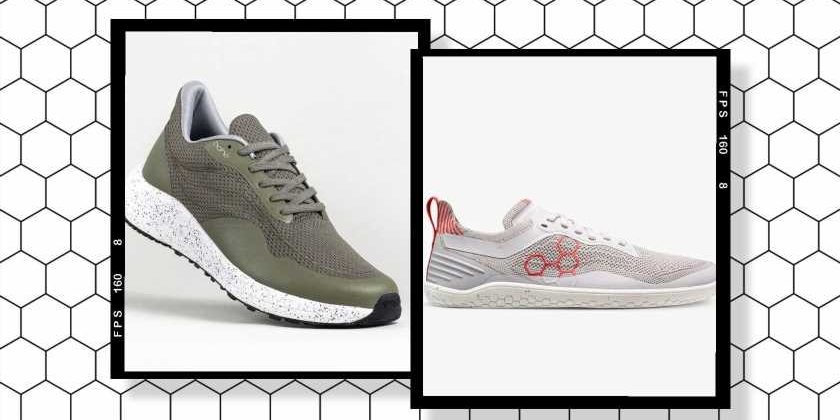What makes a running shoe vegan? If a shoe’s vegan, does that mean it’s also sustainable? Lisa Bowman investigates.
Veganism is about more than just shunning edible animal products; it extends to your wardrobe, too. Add in the need to shop sustainably and it becomes even more of a minefield. The majority of mainstream brands make many of their products with leather, and if they don’t, it’s often ‘pleather’, a synthetic material made from plastic.
On top of this, it’s often hard to figure out which shoes are vegan and/or sustainable – some brands might even try to trick you into thinking their product is more environmentally friendly than it really is.
You may also like
Best running trainers 2023: 8 of the best trainers for jogging to marathons
How to spot a vegan trainer
“When looking for vegan shoes, I would only trust clear labels,” advises Markus Maibaum, vegan writer from Veganivore and former environmental researcher for the textile industry.
“It can be really hard to find out if a shoe is actually vegan or not – besides the obvious leather and wool, shoe manufacturers can use animal derivatives in the glue. Most of the time, you will not get info about the glue in a store, and emails can take weeks to get answered.”
If shoes don’t have a vegan label on them, manufacturers like Adidas and Saucony have vegan filters on their websites, which is a more straightforward way of searching.
How to spot a sustainable shoe
Sadly, this one is much more complicated, as greenwashing is rife across the fashion industry.
“Don’t assume vegan means sustainable when it comes to running shoes,” says Susannah Davda, the Shoe Consultant.
“While plant-based foods tend to have a lower environmental impact than meat and dairy, vegan-friendly shoes are often made from plastic. If sustainability is important to you, consider the environmental impact of the materials used in your running shoes. Look for the percentage of recycled material used, whether materials are natural and biodegradable, and if plant-based materials are combined with plastics.”
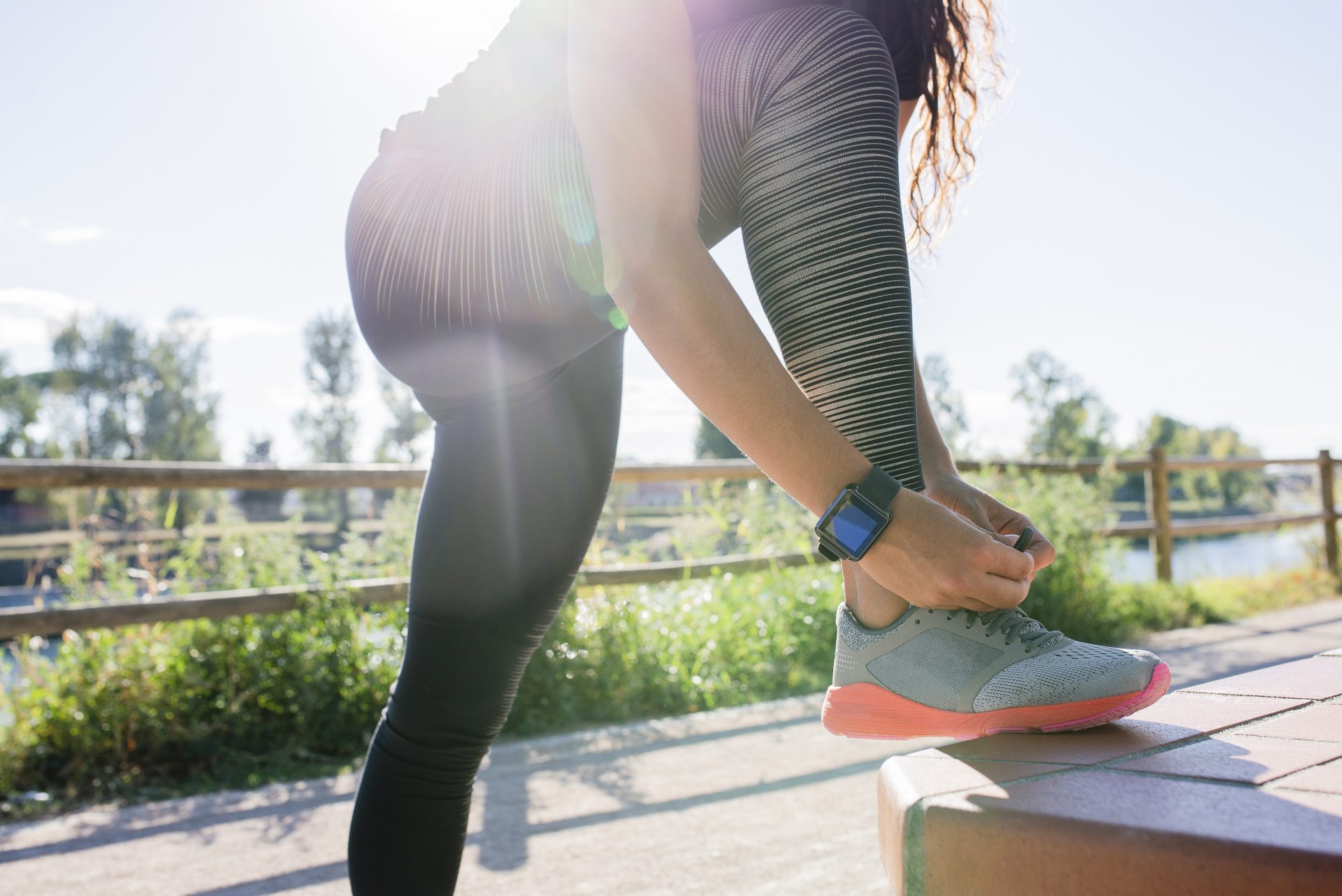
Which materials are more eco-friendly?
“In general, there are more sustainable alternatives to any material,” explains Liis Teemusk, materials management lead at MadeFrom. Think: conventional cotton < BCI cotton < organic cotton < recycled cotton.
“It’s positive if a brand is opting to use the better options in their products,” she continues.
“Some brands use bio-based materials, where the input is agricultural products/waste, rather than oil. However, it’s worth noting that bio-based does not equal biodegradable. Bio-based synthetics still shed microfibres into the environment.”
You may also like
“To me, sustainable fashion is about protecting our future and being committed to change”
Sustainability isn’t just about the materials used – it includes the manufacturing process and the entire life cycle of the shoe.
“Running shoes – as any product – should be looked at from their full life cycle point of view,” advises Teemsuk.
“A big part of its impact obviously happens at the raw material extraction and manufacturing stage, but it’s also important to consider the product use phase and end-of-life stage. The keyword to look out for is ‘circularity’.
“In an ideal world, we would have all the raw material for a new shoe coming from discarded shoes, produced using clean energy and minimally wasteful processes, transported via sea and using a carbon-neutral fleet.”
In an ideal world, you’d be wearing your trainers for years – repairing if needed and then giving them away for a second life elsewhere. And once they finally give up the ghost, they’d be broken down into their raw materials. Obviously, that’s hard with running shoes when we know that shoes stop protecting us from injury after a certain number of miles, but the recycling idea is still relevant (and old running trainers make great gardening shoes).
How to spot greenwashing
“If language is focused on impact and backed up with third-party verification or certification, that’s a great sign,” explains Teemsuk.
“More often we see language focused on activity without mentioning impact; for example, announcing new initiatives or targets that don’t have clear sustainable impact or a clear way to reach the target.
“Be wary of buzzwords like ‘conscious’, ‘eco-friendly’, ‘good for the planet’ or ‘green’.”
5 tried and tested vegan, sustainable trainers
-
Hoka Bondi 8
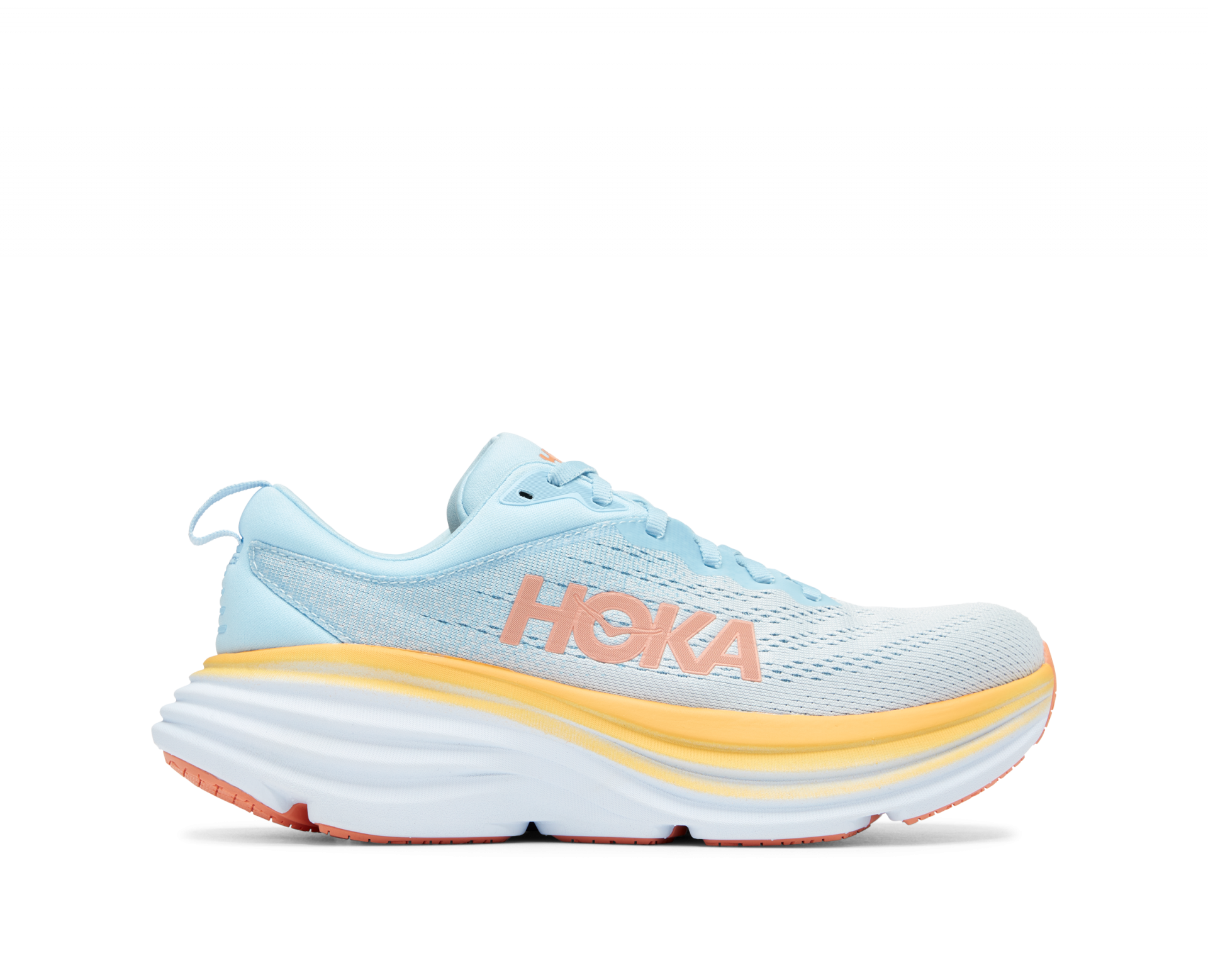
HOKA Bondi 8 shoes This neutral trainer looks almost comical, thanks to its bulky design and extended heel (which helps you lift off for your next stride), but what this gives you is plush cushioning and a super comfortable run. It’s a surprisingly light shoe considering the bulk, but is still best suited to recovery and mid-tempo road runs.
Not all Hoka shoes are vegan, but there’s a large selection. The Bondi 8 is vegan-friendly, featuring lining and mesh made from recycled content (though it doesn’t state how much) and a recycled sock liner. By 2027, Hoka aims to use recycled, renewable, regenerated or natural materials for 25% of its shoe composition, as well as reducing energy use by 25% per pair and greenhouse gas emissions by 20% per pair.
Shop Hoka Bondi 8 shoes, £145
Buy now
-
Bahé Recharge
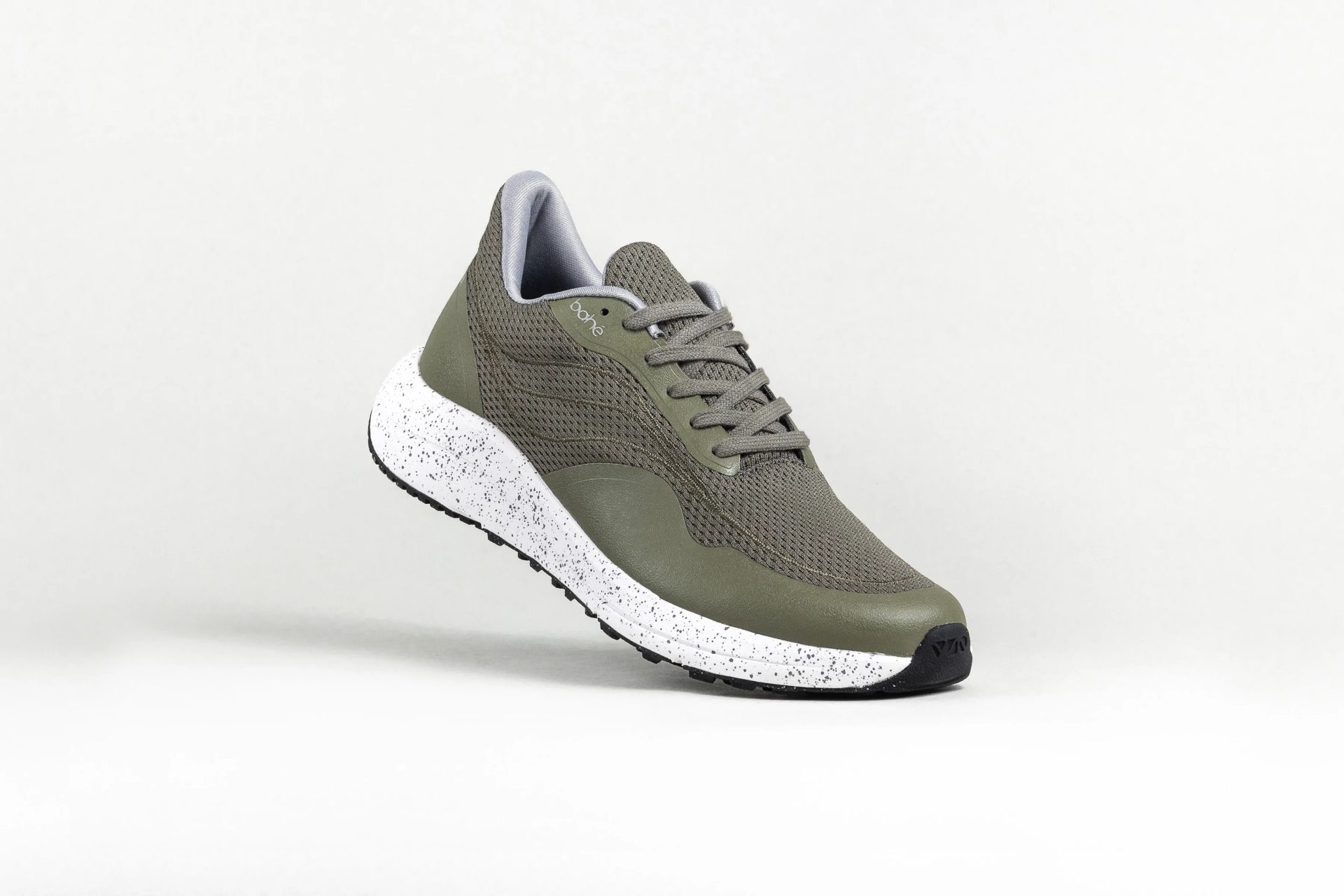
Bahé Recharge shoes Bahé is the world’s first grounded running shoe, which allows you to electrically connect with the earth. There have been a number of studies suggesting that grounding may be beneficial for reducing DOMS and improving sleep after intense exercise, as well as reducing inflammation and blood flow. While I can’t confidently attest to any of these suggested benefits after using the shoes, I can say that they were comfortable to run in (though it’s a neutral shoe; overpronators may need more support), and they look great.
Vegan-friendly, these are made from a 65% natural rubber outsole, a 5% sugarcane EVA midsole and a 72% corn polymer footbed, with 30% recycled polyester breathable mesh upper and lining. The shoes are sold via pre-order to minimise waste.
Shop Bahé Recharge shoes, £145
Buy now
-
Hylo Run
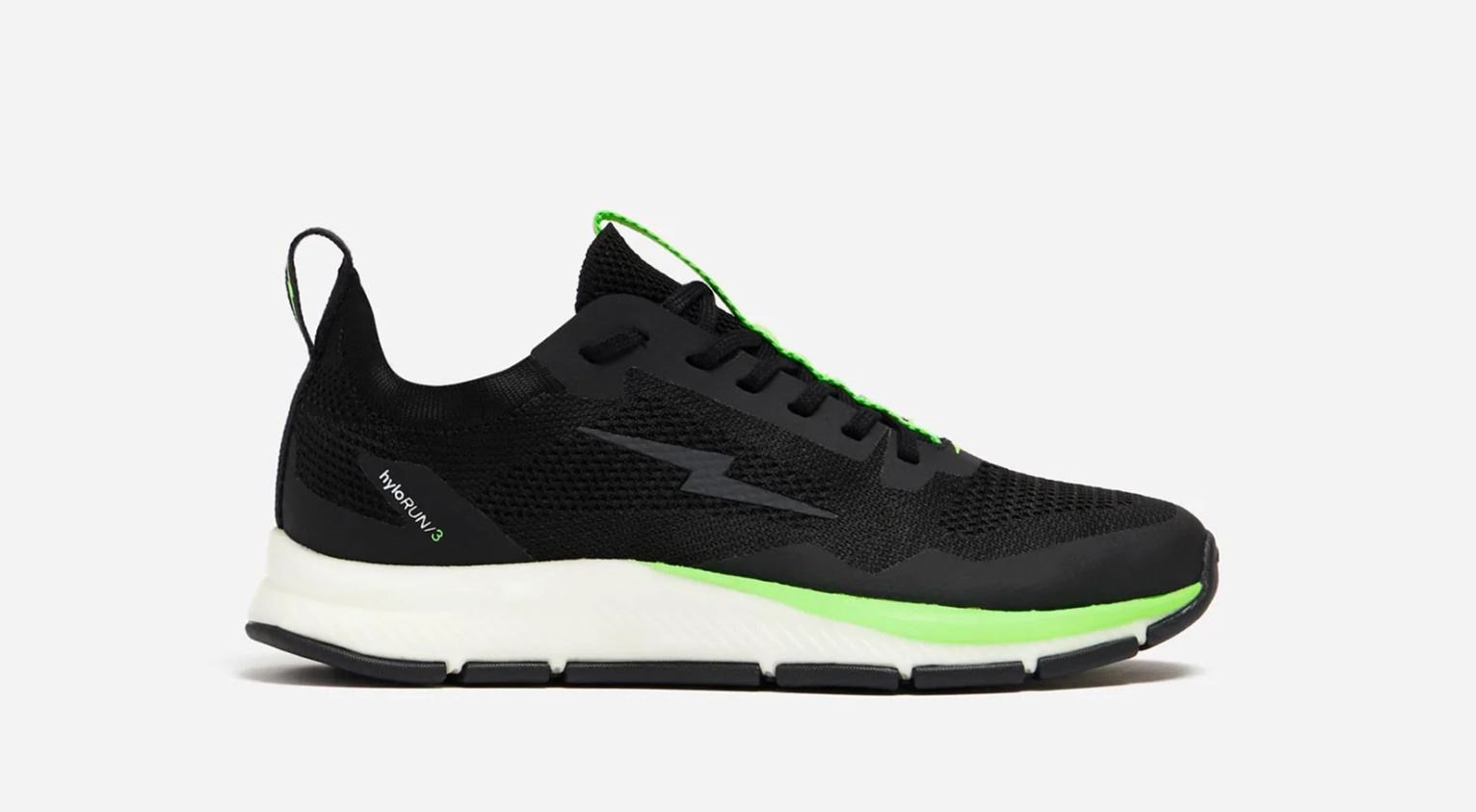
hylo RUN shoes Vegan-certified, these performance shoes are lightweight and perfect for shorter, faster road runs, though they’re still cushioned enough to stop your knees from screaming. However, if you need solid ankle support from your runners, these may not be the best choice. The Hylo Run is available in half sizes – my usual size felt pretty roomy, so I’d be interested in trying a half size down.
These shoes are made from 60.01% bio-based renewable materials, including sugarcane-derived PLA, natural rubber and bio-based EVA. According to a 2013 study by MIT, the average pair of running shoes has a carbon footprint of 13.6kg – the Hylo Run has carbon emissions of 7.41kg.
A big sustainability draw of Hylo is that it will recycle your old pair once you’re done, thanks to its hyloop programme. (They also recycle other brands’ shoes.)
Shop hylo RUN shoes, £130
Buy now
-
Merrell Agility Peak 4 Gore-Tex
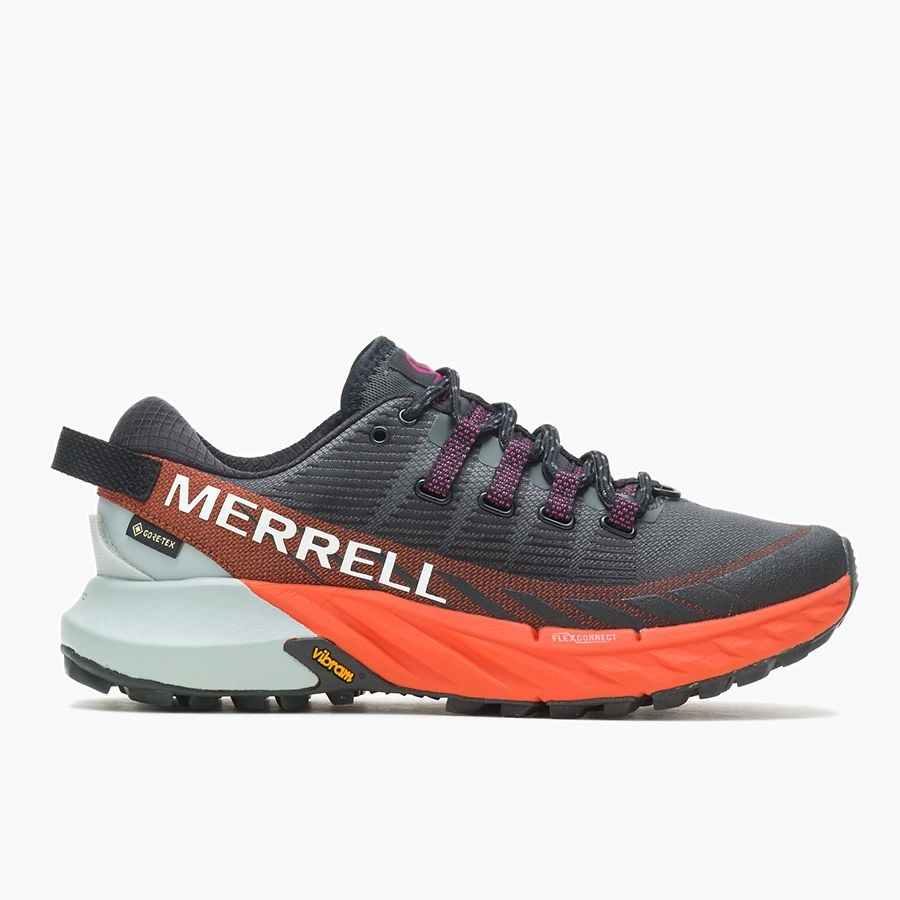
Merrell Agility Peak 4 Gore-Tex Merrell sells a number of vegan shoes, though they’re not clearly labelled on product pages. There is, however, a vegan search option. These trail running shoes are incredibly comfy thanks to their padded collar, cushioned foam midsole and grippy outsole to prevent you from stacking it on both wet and dry uneven terrain. I found these supportive enough for my collapsed arches and can confirm the Gore-Tex waterproofing is great, having accidentally splashed in a giant puddle a mere 60 seconds into my run.
This shoe features 100% recycled laces, webbing and mesh footbed cover, but no mention of eco-friendly material for other parts of the shoe.
Earlier this year, Merrell launched its ReTread programme, where you can send back your old Merrell shoes to be resold or recycled in exchange for a £20 voucher. It aims to save 300,000 pairs of shoes from landfill by 2025. It’s also aiming to ensure every product includes some organic, recycled or renewable materials by 2025, though it doesn’t state how much.
Shop Merrell Agility Peak 4 Gore-Tex, £160
Buy now
-
Vivo Barefoot Geo Racer Knit
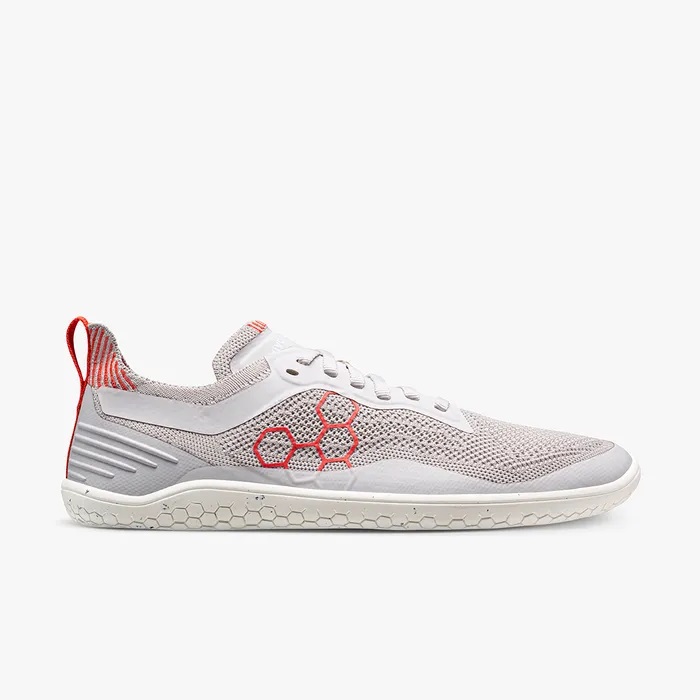
Vivo Barefoot Geo Racer Knit Barefoot shoes aren’t everyone’s cup of tea, and they take a while to get used to (it’s best to do it gradually), but the 4mm sole is designed to mimic the feeling of running barefoot. Wide, thin and flexible, they allow your feet to do their thing, and there’s no ‘boxed in’ feeling that you often get with regular shoes.
While I wouldn’t want to use these on every run (I prefer a bit of cushioning for longer runs), I do love the feeling of my feet on the ground, as it feels like they’re getting a solid workout too – a pleasure akin to stretching them out after a run. Bliss.
This shoe is made using vegan and recycled materials, specifying a recycled polyester knit upper.
You can send back your old Vivos for free thanks to the Revivo scheme, where your old runners will be either refurbished for resale or – if not suitable for refurb – disassembled and downcycled, to save them from landfill. Vivo admits this isn’t an ideal solution but says it is “constantly exploring different ways to recycle and upcycle our materials”.
Shop Vivo Barefoot Geo Racer Knit, £130
Buy now
Images: Getty; courtesy of brands
Source: Read Full Article
